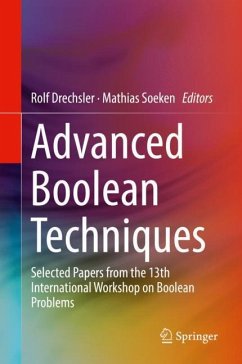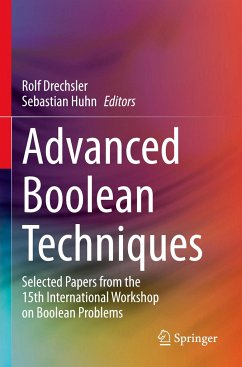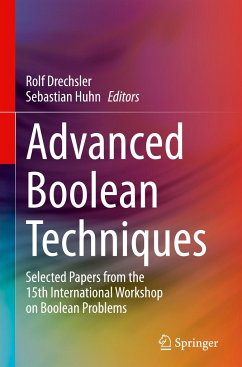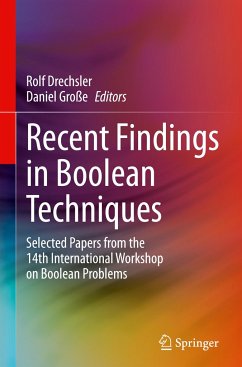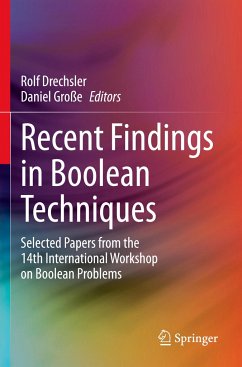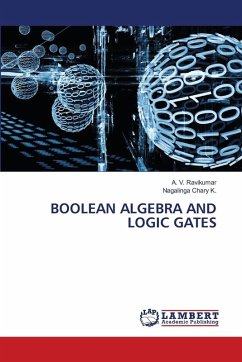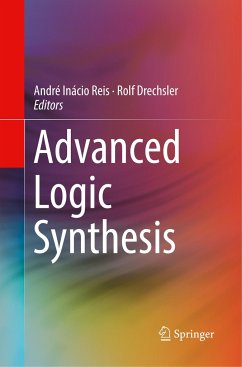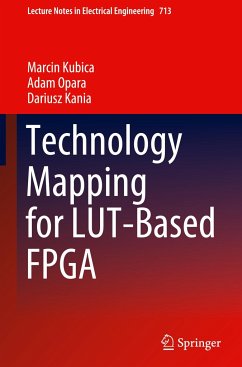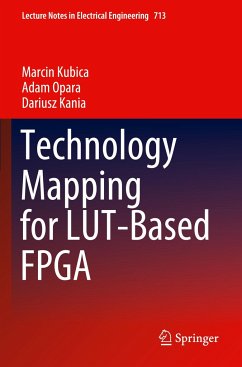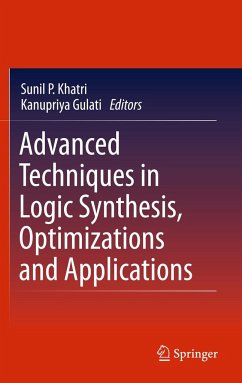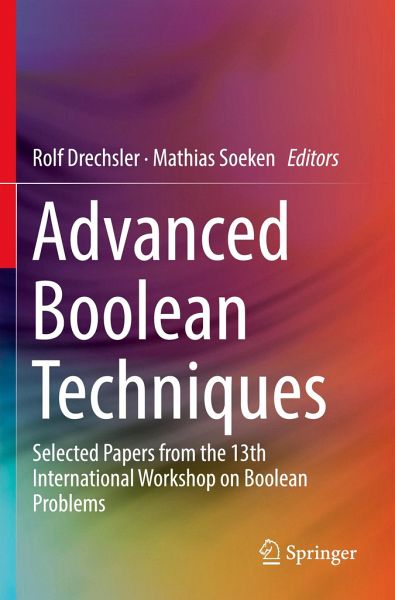
Advanced Boolean Techniques
Selected Papers from the 13th International Workshop on Boolean Problems
Herausgegeben: Drechsler, Rolf; Soeken, Mathias
Versandkostenfrei!
Versandfertig in 6-10 Tagen
76,99 €
inkl. MwSt.

PAYBACK Punkte
38 °P sammeln!
This book describes recent findings in the domain of Boolean logic and Boolean algebra, covering application domains in circuit and system design, but also basic research in mathematics and theoretical computer science. Content includes invited chapters and a selection of the best papers presented at the 13th annual International Workshop on Boolean Problems.Provides a single-source reference to the state-of-the-art research in the field of logic synthesis and Boolean techniques;Includes a selection of the best papers presented at the 13th annual International Workshop on Boolean Problems;Cove...
This book describes recent findings in the domain of Boolean logic and Boolean algebra, covering application domains in circuit and system design, but also basic research in mathematics and theoretical computer science. Content includes invited chapters and a selection of the best papers presented at the 13th annual International Workshop on Boolean Problems.
Provides a single-source reference to the state-of-the-art research in the field of logic synthesis and Boolean techniques;Includes a selection of the best papers presented at the 13th annual International Workshop on Boolean Problems;Covers Boolean algebras, Boolean logic, Boolean modeling, Combinatorial Search, Boolean and bitwise arithmetic, Software and tools for the solution of Boolean problems, Applications of Boolean logic and algebras, Applications to real-world problems, Boolean constraint solving, and Extensions of Boolean logic.
Provides a single-source reference to the state-of-the-art research in the field of logic synthesis and Boolean techniques;Includes a selection of the best papers presented at the 13th annual International Workshop on Boolean Problems;Covers Boolean algebras, Boolean logic, Boolean modeling, Combinatorial Search, Boolean and bitwise arithmetic, Software and tools for the solution of Boolean problems, Applications of Boolean logic and algebras, Applications to real-world problems, Boolean constraint solving, and Extensions of Boolean logic.





